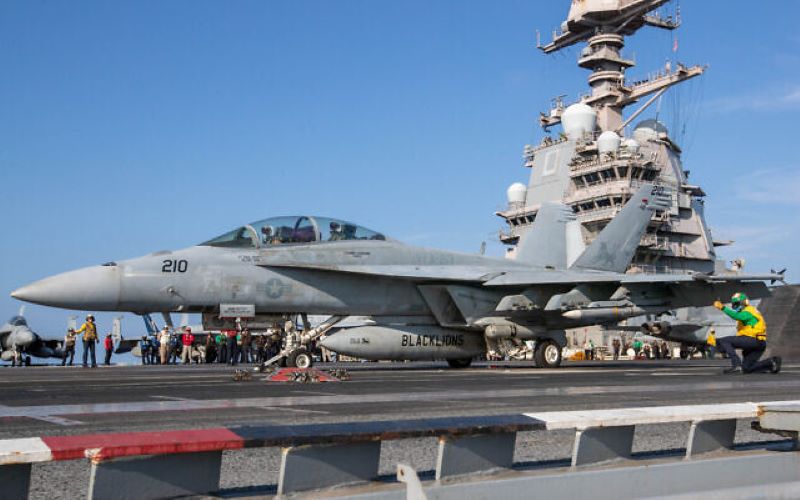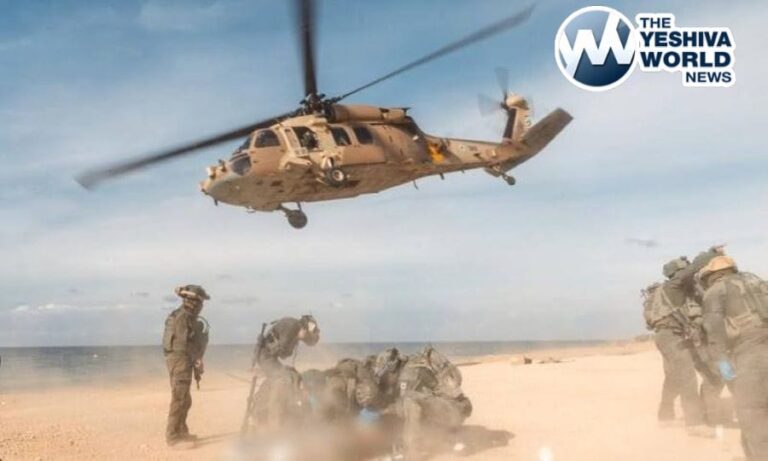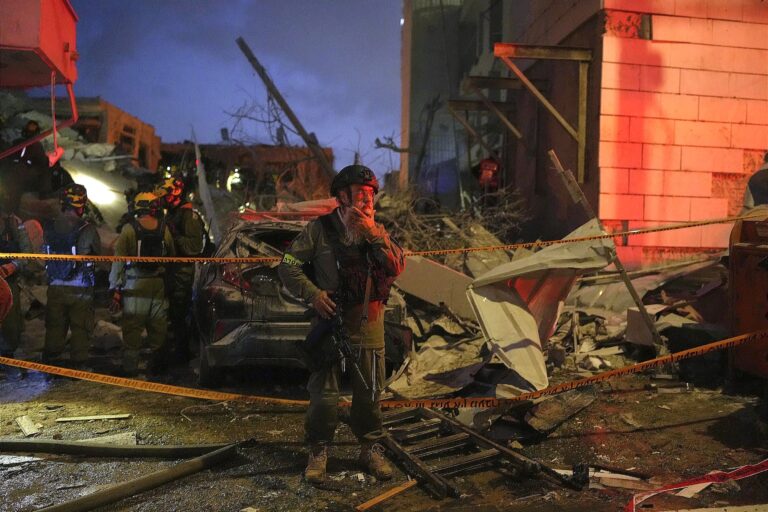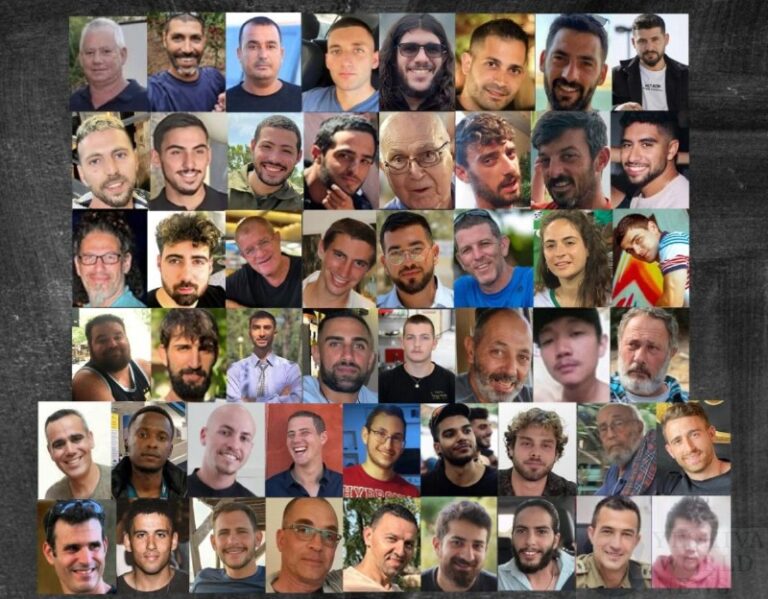The Pentagon has sent military advisers, including a Marine Corps general versed in urban warfare, to Israel to aid in its war planning and is speeding multiple sophisticated air defense systems to the Middle East days ahead of an anticipated ground assault into Gaza.
One of the officers leading the assistance is Marine Corps Lt. Gen. James Glynn, who previously helped lead special operations forces against the Islamic State and served in Fallujah, Iraq, during some of the most heated urban combat there, according to a U.S. official who was not authorized to discuss Glynn’s role and spoke on the condition of anonymity.
Glynn will also be advising on how to mitigate civilian casualties in urban warfare, the official said.
Israel is preparing a large-scale ground operation in an environment in which Hamas terrorists have had years to prepare tunnel networks and set traps throughout northern Gaza’s dense urban blocks. Glynn and the other military officers who are advising Israel “have experience that is appropriate to the sorts of operations that Israel is conducting,” National Security Council spokesman John Kirby said Monday. The advisers will not be engaged in the fighting, the unidentified U.S. official said.
The military team is one of many fast-moving pieces the Pentagon is getting in place to try and prevent the already intense conflict between Israel and Hamas from becoming a wider war. It also is trying to protect U.S. personnel, who in the last few days have come under repeated attacks that the Pentagon has said were likely endorsed by Iran.
Kirby said Iran was “in some cases actively facilitating these attacks and spurring on others who may want to exploit the conflict for their own good, or for that of Iran. We know that Iran’s goal is to maintain some level of deniability here. But we’re not going to allow them to do that.”
PBS defense correspondent Nick Schifrin stated on Monday evening: “US defense official tells me there have been “roughly eight” attacks on US troops in four locations across Iraq and Syria, with zero US military casualties or infrastructure damage. One US contractor died of a heart attack during an attack.”
Jason Brodsky, the Policy Director at United Against Nuclear Iran (UANI), responded to the report by stating: “Roughly eight attacks by Islamic Revolutionary Guard Corps terrorists on U.S. forces in Iraq and Syria, but zero U.S. response.”
The White House said President Joe Biden spoke with Israeli Prime Minister Benjamin Netanyahu on Monday to update him on “U.S. support for Israel and ongoing efforts at regional deterrence, to include new U.S. military deployments.”
On Monday, the U.S. military garrison at an-Tanf, Syria, came under attack again, this time by two drones. The drones were shot down and no injuries were reported. It was the latest episode of more than a half-dozen times in the last week that U.S. military locations in the Middle East had come under rocket or drone attack since a deadly blast at a Gaza hospital.
Last Thursday the destroyer USS Carney shot down four land-attack cruise missiles launched from Yemen that the Pentagon has said were potentially headed toward Israel.
The U.S. has also advised Israeli officials to consider a delay in any ground assault, saying it would give more time to allow the U.S. to work with its regional partners to release more hostages, according to a U.S. official familiar with Biden administration thinking on the matter. The official, who requested anonymity to discuss the private discussions, said it was unclear how much the argument will “move the needle” on Israeli thinking.
The New York Times reported on Monday that the Biden administration is concerned that Israel lacks concrete military goals for a ground operation in the Gaza Strip of its stated plan of eradicating Hamas and that the IDF is not prepared for a ground incursion into Gaza.
Although Biden administration officials have asserted that they are not telling Israel what to do, some Israeli commentators claim the opposite, saying that the US is using its influence [and considerable military aid] to delay the ground incursion. On the other hand, many Israeli military experts are also advising that the IDF should not yet enter Gaza as the army is not properly trained, a ground incursion will be playing into the hands of Hamas, which will be waiting in Gaza with booby-trapped “surprises,” and a ground op will inflict an unbearable death toll, chalilah, among IDF soldiers.
Maj.-Gen. (res.) Yitzchak Brik, who is currently a sought-after interviewer following his prediction of the Hamas assault, said in an interview on Reshet Bet on Tuesday morning: “I advised Netanyahu to wait for a ground incursion. The army isn’t ready. The entry of the IDF could deteriorate into a regional war. A large number of forces will be stuck inside the Gaza bog and face heavy fire for months. Tens of thousands more will remain inside the tunnels. Hastiness is from the Satan.”
Another Israeli commentator expressed a different view, as seen below:
In response to the attacks against its forces in the Middle East, over the weekend the Pentagon announced it was sending multiple Patriot missile defense system battalions and a Terminal High Altitude Area Defense system to the Middle East, as well as repositioning the Eisenhower strike group to the U.S. Central Command area of responsibility. The ship had previously been en route to the Eastern Mediterranean.
The shift means that the Navy will have a carrier strike group off the shore of Israel — the Ford carrier strike group — and another, the Eisenhower, potentially maneuvered to defend U.S. forces and Israel from the Red Sea or the Gulf of Oman.
“We’re going to continue to do what we need to do to protect and safeguard our forces and take all necessary measures,” Ryder said. “No one wants to see a wider regional conflict. But we will not hesitate to protect our forces.”
(YWN Israel Desk – Jerusalem & AP)












5 Responses
He’s not an expert on tunnels
How many attacks in Israel occurred, and civilians running to rooms every night, when the US attacked Iraq during the Gulf War?
Israel was told to just sit tight and let the US take care of it.
We did, maybe the US should either do something useful, besides the armaments (Thank You) or just let us take care of Hamas ourselves in the time and manner we see fit.
Israeli military has a lot more experience with the Hamas and their tunnels.
AND, please spare us any reports from the NYT, they are just free propaganda used to demoralize the Israelis.
But, don’t worry, we know what they are trying to do
cmon stop delaying the operation already how many more people do u want killed maybe turn this war into a 2nd holocaust is that what u really want 2 happen cause it will happen if the u s will stop getting mixed into this
Did the US do so well in Iraq etc?